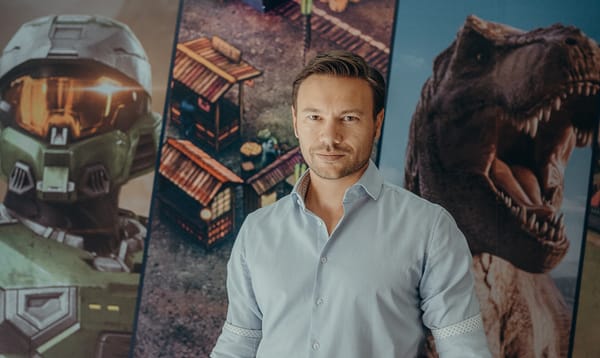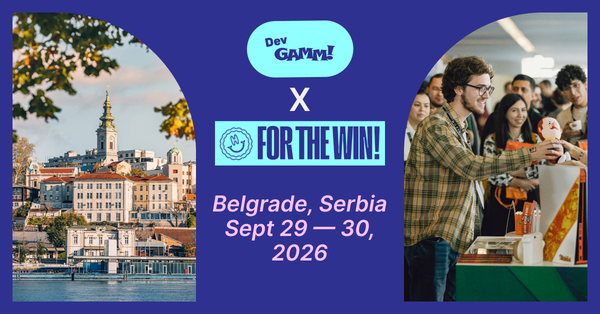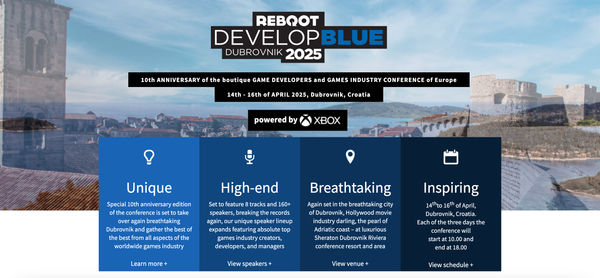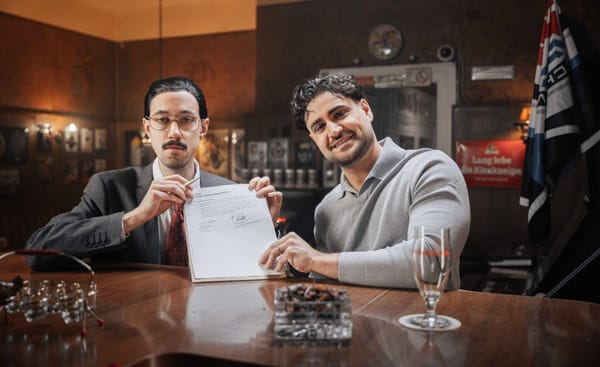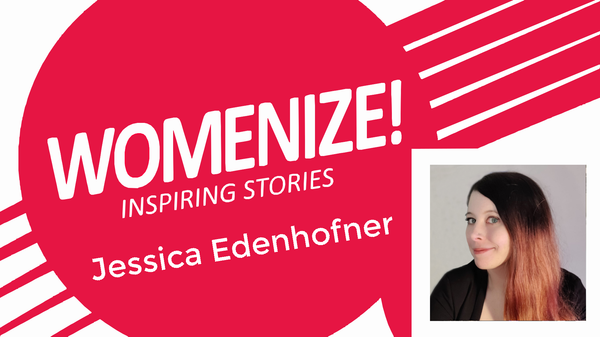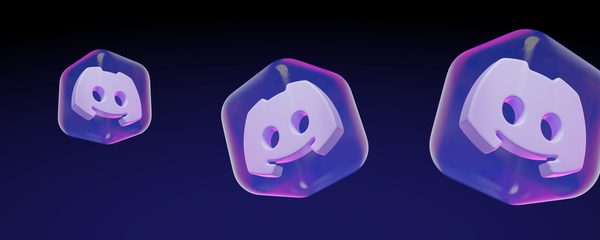Maria Chyrvona: Connecting Markets and Tapping into Communities with DevGamm
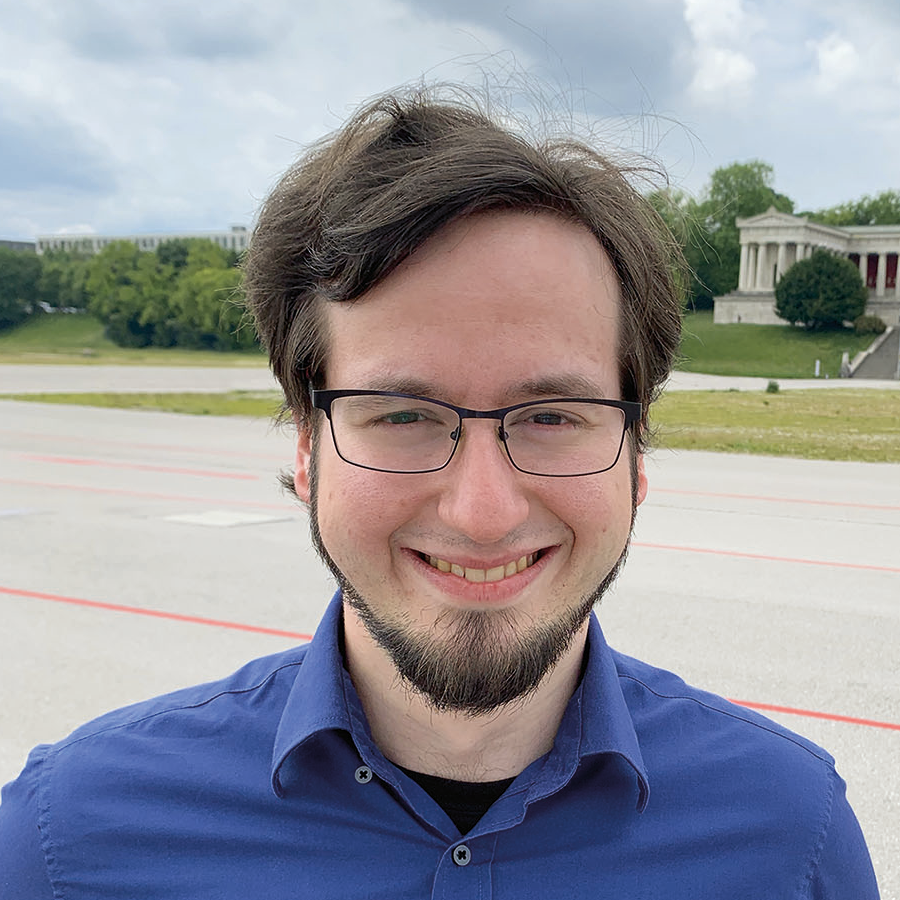


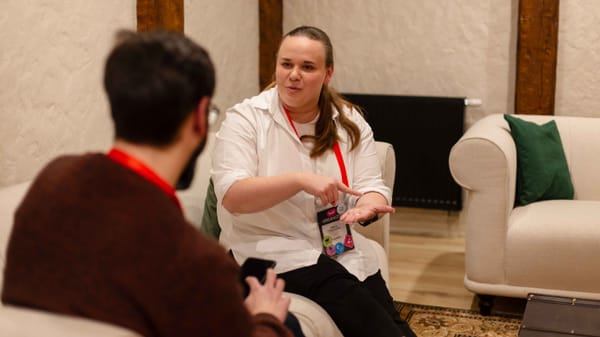
The first DevGamm after a change of leadership in the team brought the Eastern European developer community together in solidarity. We spoke to the new CEO Maria Chyrvona on site in Gdansk about the DevGamm brand, Ukraine and what makes each event special.
Enjoy this interview? GamesMarkt is available entirely in English now, so come back to read regularly or join or daily free newsletter about the games industries of Germany, Switzerland and Austria.
GamesMarkt: What is DevGamm? How did it start, and how did it come to Gdansk?
Maria Chyrvona: DevGamm was founded in 2008 by Lerika Mallayeva in Ukraine. It started as a Flash game developers gathering at a garage, as all the best things do. It was called FlashGamm at the time. It started in Kyjiw and later came to Moscow and others. Our first market was Easter Europe, so we were big in Ukraine, Belarus and Russia. Then, when Covid and the war happened, we cancelled all our events in Moscow, even though our biggest events before that took place there with over 2000 attendants. We also decided not do anything in Belarus anymore after the protests in 2020. And after the war of course we don’t feel safe and some of our team members cannot travel to Ukraine, so we are not having any events there at the moment, but we really want to come back there after the war ends. Both Lerika and me are Ukrainians, and for us it’s a very personal thing.
After a long history of events in Eastern Europe and building bridges between the east and west, we decided to move our event to Central Europe, but still as an immigrant event. We are still trying to connect the audience from the east we have, the Ukrainians and Belarussians that moved further west after all the events, with the local markets here in Europe. It’s one of our biggest goals. We do events in Poland like here in Gdansk, our next event is going to be in Vilnius and then in November we will be in Lisbon for the second time. So we are covering a lot of things here in Europe. Everywhere, the audience is different, the companies differ and so does our focus. For example, the Gdansk event is more for developers from Poland, Ukraine and Belarus, in Vilnius we are more focused on the Baltics market with more of a summer festival vibe, and in Lisbon it’s more of a luxurious, executive VIP event for investors. So we have different styles of the event.
DevGamm is a B2B conference for game developers, publishers and everyone involved in the industry. And we will continue to do that, being a B2B conference. We are not focusing on consumers.
DevGamm always consists of these several events per year, at different places and with different concepts. How did you get to this structure?
We have a very small team of 13 people that work full year, full time. We also use part-time help. We go from one event to the next, our cycle never ends. We’ve done 2-3 shows per year for the whole time DevGamm existed. Because we are a reflection of the industry. The game industry is always changing, so we can react to what happens from event to event. We are very agile and quick to change things, and we are not satisfied with doing just one. It’s also nice to see the audience overlap from event to event. And we can solve problems for them several times a year. Since the events are different, we can also experiment with new formats all the time.
Lisbon is the outlier of the events. How did that location come to pass?
We always wanted to do something in Western Europe. We had a small edition in Hamburg in 2015, but at that time our focus was still more on Minsk, Moscow and Kyjiw. But now we have a lot of Western Europeans that know us. And we are very good at emerging markets. In Lithuania there were no B2B-only game events before we got there. Gdansk had a need for events, so we connected with the Digital Vikings project created by Vixa Games studio. We wanted to something in Poland and they needed an event in Gdansk for the awards. The same happened in Portugal. We joined an event there, talked to the national games association Associação de Produtores de Videojogos Portugueses, and they told us they are still missing a B2B event in Portugal. Since emerging markets like these are our specialty, we decided to try it. And because of the location, we did something fancier than we used to. We always wanted a VIP show to get to a more senior, executive audience that then will also notice our other shows. That would bring more value to the developers, which remain our main audience. We want to help them find publishers, money, services and so on. That’s why our Lisbon event connects us better to the US, UK, Brazil markets. It’s a very important location for us to have. We can already see the impact on other shows here in Easter Europe.
How?
There are more companies, especially publishers interested in the projects here that are coming from the West. Sometimes the companies from e.g. the UK or US are so used to attend the same events and the same kinds of shows, they all go to GDC and gamescom, and they always see the same people. And we tried to bring them to the markets that are unfamiliar to them, introduce them to developers they haven’t seen before. And the Lisbon show is the connection that we need to introduce them to DevGamm, and then to our other shows. They discovered DevGamm with the Lisbon show and then they came here, to Poland, and will join us in Vilnius as well. Lisbon connects all three locations for us. It helps that we can there do our dream event at the ocean site. It’s located in a five star luxury hotel with a golf course directly at the beach. Part of the VIP tickets last year were golf courses with professional trainers as an experiment. We always bring more to the table than a standard conference. We are too creative to stay the same. And in a way, Lisbon is the game of our creations. It pops out, and that is good for our name.
Most brand names would want to establish a consistency with their brand name. You do the opposite and experiment all the time under the same name. Did that have any negative consequences?
No, I wouldn’t say. DevGamm as an event is defined by good organisation, familiar faces, quick responses to the industry and the overall quality of production of the event. And people are familiar with our team. They trust the DevGamm name in that way. But with the formats and the ideas, change is good, it helps us. Why would we do three shows in a year if they were all the same? That doesn’t make sense. And on the bigger picture, the core of DevGamm stays the same, like the people and an often overlapping audience.
58 percent of the people visiting the Gdansk event live in Poland. I assume the Vilnius event is also most attractive to the locals in the Baltic area. How is that in Lisbon, does it also have the regional touch?
No, we do see a difference. In Vilnius, about 59 percent of the visitors were also local. But at Lisbon, it was in the range of 44 percent for the local audience. More of the people attending were from other countries, like UK, the US, Brazil, and of course also Poland and Lithuania since a lot of people follow the events abroad. We’ve seen a lot of new people there. The most interesting fact would be that about 70 percent of the people in Lisbon where attendants that never visited another DevGamm before. In Gdansk or Vilnius it was always about 50 percent new people, which is very good retention in our books. But for Lisbon, this high a number means we really reached new markets. So many international people were newly introduced to DevGamm. And the Portugal market is still developing with some already really big, important studios like Saber Interactive, for example, or Miniclip, but otherwise the market is so fresh, with many exiting parts, like Madeira, which is an autonomic region in Portugal and had it’s own representatives at DevGamm as well. In a few years, we will see huge growth in Portugal’s game industry, I think. And the country was very welcoming to us, the association as well, and helped us a lot to integrate DevGamm there. We plan to stay and we also plan to connect to Brazil via the event there, since Portugal is in a unique position to that and the Brazilian market is very big. It can be our unique advantage to bring more developers from Brazil to Europe. In our plans are also connections to Northern African countries like Morocco and Egypt, but that is a market we haven’t started to tap in. The Lisbon event takes places during the week of WebSummit, a big start up event, and they have a lot of national delegations coming. So the idea is also to bring those the opportunity to see developers who showcase at DevGamm when they are in the area anyway and connect them.
What makes the Gdansk event special to you?
Here in Gdansk we understood how the communities can actually come together. Because here you see so many different people. The other important Polish events like Digital Dragons and Game Industry Conference are different in audience and more representative of the Polish market, they are very established and have been here for many years, but they lack that range of companies that recently moved to Poland in terms of the audience. For me, this DevGamm is so special because there are so many Ukrainians joining the event. I want to see them everywhere, because they are everywhere at this point. But especially here in Poland it’s a big community and for us it’s very important to support this market. That’s why we chose Gdansk as well: To be close to all the Ukrainian developers and companies. I want to emphasise that the support for Ukraine still needs to be there, even after two years, we are still here, this is very important.
With Eastern and Western Europe covered so well, do you have any plans for Central Europe, even though most markets there are not really emerging markets anymore?
In Portugal, we had a lot of people from Central Europe, e.g. from Germany. When we thought about where we should and want to be present in Europe, we thought about all countries. But at the same time, the competition in Central Europe is quite hard. There are a lot of strong B2B events in Germany and France, for example. And we are currently still establishing our brand outside of our former core markets. If we go somewhere in Central Europe, our idea would be Germany, because the market is so big. We feel like there might be room for more shows. But it’s not in the immediate plans and we are still researching. We don’t want DevGamm to be a rotating, wandering event. If we come to a place that we like, we understand that we bring value there, we would like to stay and grow with that place. That allows us deeper connections with the local companies, gouvernments, indies and so on. If we decide to invest into a new location, it would be very well-picked so we can bring value there. With devcom, gamescom and the Hamburg Games Conference, Germany is in good hands. But we are always thinking about many locations, like doing something in the Balkans or even Asia. You might hear about a next DevGamm, but it will not replace one of those we have, it will be an addition.
Speaking of additions and changes, the Gdansk event started as the replacement for the Kyjiw event when that was no longer possible. Now Gdansk is established, you have a cooperation with the Digital Viking Awards here. When sometime in the future you can come back to Kyjiw, would you move the event back, build up a new Kyjiv concept or even keep the Poland event the center for the Ukrainian market as well?
We don’t know when that future will come, of course we hope it’s soon. I think we need to answer that question when we come to it. I don’t think we will sacrifice Gdansk for Kyjiw. And we never forced one event for every country like one for Ukraine, one for Belarus and so on. No, we experimented with every location, and looked where it sticks. And if we grow here in Gdansk, maybe we will have the capacity and money and support to get a bigger team and make an entirely new DevGamm in Kyjiw. Because the Gdansk event has such a unique mix: It’s Polish, Ukrainian, Belarussian, and it would be completely different back in Ukraine. So I think, when we come back to that decision, in the future, it will probably not be an exchange, but a matter of doing both.
Is there anything that did not work out so well?
Well, yes, and I think it is connected to the state of the industry at the moment. We wanted this Gdansk event to grow, but it stayed at the same audience level as last year. We feel that the weird state of the industry with the layoffs, budget cuts and everything influences events, I wouldn’t say the most, but a lot. We’ve talked to other event organisers and they all see a drop in sponsorships, in attendance, in company support, even in people sharing knowledge in talks and so on. Everyone is closed off and focused on their own understandable problems at the moment. So I would especially appreciate if the GamesMarkt audience, and any audience for that matter would support events even more this year, not just us. It’s going to be hard times and I hope all events survive. Because these events are very important parts of the industry to push ideas further than it would happen in the office spaces, to make many more games happen thanks to connections to publishers and investors and so on. We are feeling that this industry change is hurting us, and it will hurt a lot of other events. We need to be more creative to survive this. That is the point of us doing many new things in many different markets. I think only the teams that are more quick to respond, more flexible, will survive this. Event organisation is dealing with problems all the time, and this industry state is just another problem for us to solve, even if it is the hardest one to this date. And I think in terms of audience, even if normally everything must grow, I think if the numbers keep at the same level, that is good. A good showcase that the industry is still happening. So in my opinion, I wouldn’t expect this year, except maybe at GDC and gamescom, to break any growth records. It’s going to be a year of stagnant or lowered numbers, it feels like. At the same time, we received an incredible 280 games submissions. Games are still there, developers are still there, a lot of indie games are showing up, and I think they are the ones with the least risk that really shine now. We heard from publishers and even hardware producers that they are now increasingly focus on indies, since they see the potential there. And I really hope that the indies save this industry.
Let’s talk about you. You are now the second CEO of DevGamm ever. When did you come to the team?
I wasn’t part of the team from the very beginning, but very early. I was part of the team since 2013, when I visited my first event. It was actually the first one under the DevGamm name, after it was renamed from FlashGamm because it was no longer an event just about Flash development. It was in December in Kyjiw, and I was helping as a volunteer. I fell in love with the event and asked if there was a space for me to help in the long run. I then went part-time as a PR manager for several years since 2014, became program producer later and then COO. Since January 2024, I am CEO. So it has been ten years for me with the team. I did over thirty events, online, offline, small, big. It’s been a long road, but still DevGamm manages to surprise even me. And since it’s so creative, I never burned out. There’s always something new to achieve.
This is your first DevGamm as CEO after the first change in leadership ever. How is it different?
It is different, I have more responsibility on my shoulders. But it wasn’t a one-day transition Lerika did an amazing job leading this conference and teaching me. She’s been my mentor for years. We started the transition to CEO a year ago, we announced the change to the team internally at the 2023 Gdansk event. So the Lisbon event was my first one doing more things independently, and Gdansk 2024 is my first event doing everything without Lerikas direct help, but with her guidance, because she is still involved with strategic decisions. It’s the first event since forever that I feel a bit nervous even though I did so many DevGamms already. But I love that feeling, it means that there is something new for me to do. And the team was great with the transition as well, we work very well together. The team we have now is so senior, so experienced, because so many have stayed with us for three, five, sometimes seven years. That’s why me and Lerika and me trust them the same as ourselves. That makes being CEO much easier than you would think. Is there one big thing that you changed as soon as you became CEO? Well, join us in Vilnius and you will see. We created a new concept for a DevGamm that we will try out there. It’s going to be a summer festival, with education and edutainment, workshops, picknicks, food stands and much more. We wanted to do a very summery event. That was the thing I wanted to change. Otherwise, it’s not like I didn’t have an influence before. Every time I wanted to introduce something new to DevGamm, Lerika and the whole team were so open to it. We brainstorm together what we want to do, and many ideas have always been heard and introduced instantly.
Last but not least: What was your favourite game from the showcase at DevGamm Gdansk 2024?
That would be "Telegraphist 1920: Beats of War" by Cubepotato Games! They also beat Sos Sosowski at Game Roast, so that made them extra special in my eyes.
Never miss anything from the German, Swiss and Austrian games industry again: subscribe for free to our Daily newsletter and get all news straight to your inbox.
